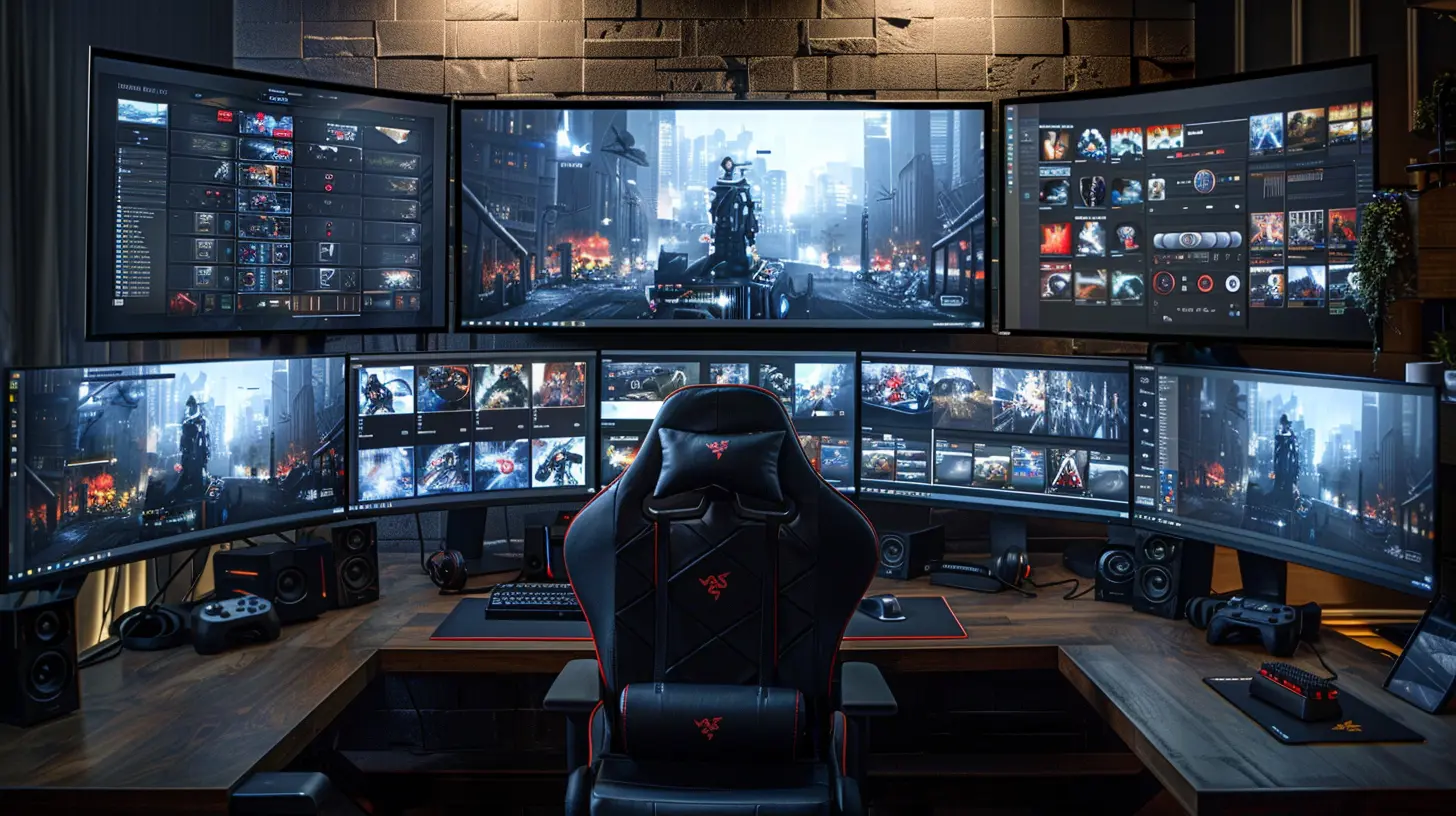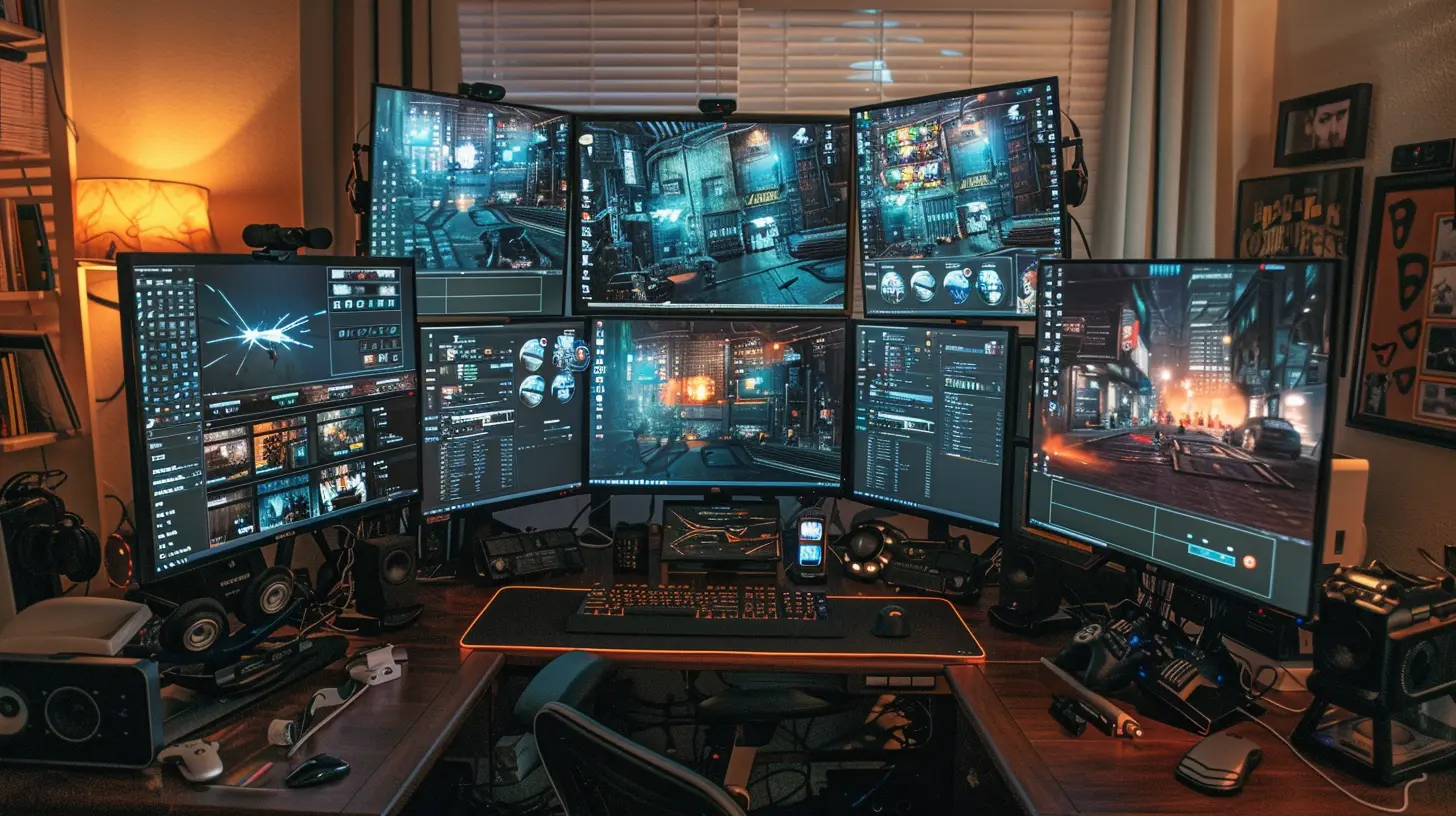Creative Problem-Solving in Cooperative Games: Thinking Outside the Box
2 June 2025
Ah, cooperative games. The perfect test of friendship, patience, and your ability to resist flipping the Monopoly board in frustration. But hey, it’s not all stress and yelling at your bestie for not understanding your obvious hints in Codenames. Cooperative games are where teamwork meets brainpower, and sometimes, a little creative problem-solving. Because nothing screams “bonding exercise” like collectively figuring out how to escape a sinking submarine or survive a zombie apocalypse—right?
But here’s the kicker. These games aren’t just fun; they’re also secretly training you to think like a genius. Yeah, you heard me. When you dive into cooperative games, you are forced to think outside the box to overcome challenges. Let’s wade through why creative problem-solving is so crucial in these wonderfully chaotic games and how it turns you into Sherlock Holmes—minus the hat and pipe, of course. 
What Makes Cooperative Games a Breeding Ground for Creativity?
More Heads, More… Chaos?
Unlike regular competitive games where you're busy plotting your friends' downfall, cooperative games require you to work together. I know—sounds a bit utopian, right? But hear me out. Because these games force you to join forces with people (sometimes unqualified people who have no idea what they’re doing—it happens), you quickly learn that everyone thinks differently.One person is an over-planner, while someone else is winging it like they’re auditioning for a role in a sitcom. Suddenly, you’ve got conflicting ideas flying across the table faster than a ping pong match. But that’s the beauty of it! The chaos forces you to combine your wits and think creatively, meshing different perspectives into one coherent strategy.
Unpredictable Scenarios Demand Unpredictable Solutions
Cooperative games often throw you into the wildest situations. You’re not just solving problems; you’re solving problems on steroids. Think “how do we keep this tiny wooden boat from sinking while also feeding ourselves and fighting off a kraken?” (Looking at you, Forbidden Island).These games thrive on throwing curveballs, and you can’t just rely on traditional logic to survive. Nope. You’ve got to think in spirals, zig-zags, and that weird scribble shape your dog makes with their tail when they’re excited. Innovative thinking is non-negotiable. 
Why Traditional Problem-Solving Just Won’t Cut It
Traditional problem-solving is like trying to hammer a nail with a banana—it might work, but it’s not exactly efficient. In cooperative games, you can’t just rely on the same tired strategies and hope for the best. Why? Because the developers love to troll you.Cooperative games are designed so that no single person knows everything. There’s often hidden information, random events, or mechanics that keep changing the rules mid-game. You can't just be a one-trick pony. You have to channel your inner creative genius, MacGyver-style.
Take Pandemic, for example. You’re out here trying to save humanity from about 14 different diseases, and it feels like the universe decided to roll a crit hit against you every turn. You think to yourself, “Hmm, maybe if I move here and trade THIS card, Karen over there can cure the disease in Europe.” But oh wait—Karen is across the world, and now there’s an outbreak in Tokyo. Guess what? Time for Plan Z. 
Thinking Outside the Box: Real Tactics You’ll End Up Using
Let’s get a little practical here, shall we? What does “thinking outside the box” actually look like during game night?1. Communication is Key (But So is Not Over-Communicating)
You’d think excessive communication would be a good thing, but oh no. In games like The Crew or Hanabi, being TOO chatty is basically a death sentence. Instead, you have to rely on subtle hints, body language, or even a well-timed eyebrow raise. You know, like spies in a bad action movie.Creative communication is everything. Sometimes, you have to phrase things in roundabout ways because the rules forbid direct statements. You get to channel your inner poet or cryptic guru, which is surprisingly hilarious and weirdly challenging.
2. The Art of Fake Confidence
Quick! There’s a timer ticking down, and if you don’t act fast, the spaceship blows up. You have two seconds to make a decision that feels less like logic and more like pulling random ideas out of a hat. In moments like these, you’ve got to channel your inner thespian and act like you KNOW what you’re doing.Most cooperative games reward bold decisions over timid hesitations. Even if you're wrong, being decisive can inspire your teammates to rally and adapt. Plus, who doesn’t love a good fake-it-till-you-make-it moment?
3. Breaking the Rules (Sort of)
Okay, don’t actually cheat. But sometimes, success in cooperative games involves bending the rules in ways the designers didn’t expect. You know, like combining two creative ideas into a Frankenstein solution that technically shouldn’t work but somehow does.For instance, in a game like Spirit Island, players might pool resources in bizarre ways or use their powers in unorthodox combos to protect the island from invaders. It’s not in the “by-the-book tactics” section, but hey, desperate times call for desperate measures. 
When Problem-Solving Goes Off the Rails
Now, let's address the elephant (or maybe the 12-foot mutant zombie) in the room: what happens when creative problem-solving goes wrong? Because, let’s be honest, not all “out-of-the-box” ideas are good ideas.Someone suggests burning the crops (in-game, of course) to distract the raiding orcs, only to realize two turns later that you now have no food. Or maybe your genius plan to “divide and conquer” leaves half the group stranded in a dungeon filled with lava.
The truth is, failure is part of the process. Cooperative games need you to mess up occasionally because that’s what makes the eventual win so satisfying. Plus, you’ll laugh about it later, and isn’t that what game night is all about?
The Real-Life Benefits of Creative Problem-Solving in Games
Why does any of this matter, aside from having a fun Saturday night? Because the creative problem-solving skills you sharpen in these games can apply to real life.Can’t figure out how to get two kids to share one cookie? Channel your Pandemic negotiation skills. Stuck in a work dilemma where no one can agree on an idea? Pull out the teamwork tactics you honed during The Crew.
Cooperative games force you to hone soft skills like adaptability, lateral thinking, and collaboration. And honestly, those are way more practical than knowing which Power-Up beats Bowser in Mario Kart.
Final Thoughts: Stop Thinking Inside the Box
TL;DR? Cooperative games are like a mental gym where you wrestle with ridiculous challenges, hilarious miscommunications, and the occasional existential crisis (“Wait, am I even good at this game?”). And while you might not always win, the real victory is in stretching your creative muscles.So next time you find yourself sitting down for a round of Gloomhaven or Captain Sonar, remember: the weirder the solution, the better the story. Go ahead, think outside the box, color outside the lines, and for the love of meeples, have fun with it!
all images in this post were generated using AI tools
Category:
Cooperative GamesAuthor:

Leif Coleman
Discussion
rate this article
3 comments
Taryn Ford
Great insights! Cooperative games truly highlight the importance of creative problem-solving and teamwork. Thank you for sharing!
June 6, 2025 at 5:07 PM

Leif Coleman
Thank you for your feedback! I’m glad you found the insights valuable. Collaboration and creativity are indeed key in cooperative games!
Audrey Patel
Ah yes, because nothing screams 'teamwork' like arguing with friends over who gets to break the box. Who knew creative problem-solving meant finding new ways to bicker?
June 4, 2025 at 3:01 AM

Leif Coleman
I appreciate your perspective! Creative problem-solving can definitely lead to lively discussions, which is part of the fun in teamwork.
Karly Heath
Who needs a box when you can just throw the whole game board out the window? Creative problem-solving: 1, Stuck in a rut: 0!
June 2, 2025 at 2:39 AM

Leif Coleman
Exactly! Sometimes, shaking things up is the best way to inspire fresh ideas and solutions!



